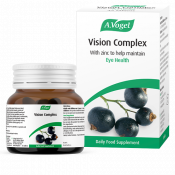An introduction to Computer Vision Syndrome
In an increasingly digital world, more and more people are experiencing the unpleasant consequences of excessively using computers and digital technology. Computer Vision Syndrome (CVS), also known as Digital Eye Strain, is a condition which arises from prolonged, uninterrupted use of a computer or other digital device such as a smart phone or games console. This results in a range of eye problems similar to regular eye strain.
CVS arises when we focus on a digital screen, up close, for long periods of time, as this causes strain on the eyes and affects their ability to focus.
What are the symptoms of Computer Vision Syndrome?
Many of the symptoms of Computer Vision Syndrome are similar to the symptoms of eye strain. These symptoms are often intensified with CVS because of an increased strain put on the eyes by glare, a too bright or too dim screen, small text and incorrect posture.
The symptoms of CVS are:
- Eye discomfort
- Sore, burning, itchy or dry eyes
- Headaches
- Blurred vision
- Neck, shoulder and upper back pain
- Increased sensitivity to light
- Difficulty focusing on the screen or readjusting eyes to focuson other objects
- In severe cases, it can even cause nausea and migraines.
Lifestyle or workplace adjustments
CVS can often be prevented or resolved by making a few changes to the way in which you use digital technology, whether at home, on the go or in the workplace.
- Regularly rest your eyes. Use the ’20-20-20 rule’ – every 20 minutes, look at an object 20 or more feet away, for at least 20 seconds. This allows the eye muscles to relax. Every hour or so you should take a slightly longer break of around five minutes – make a cup of tea or take a trip to the bathroom. During this break, try to keep your eyes active by looking around you at different objects of varying distances
- Roll your eyes – preferably not when someone is talking to you! Close your eyes and simply roll them up and down, left to right, and in circles. You’ll feel a nice stretching sensation that almost feels like an eye massage
- Blink. This seems silly, but when looking at an object close up, our eyes tend to blink less frequently. This can cause them to dry out and become irritated. Some people find it useful to stick a note to their monitor reminding them to blink
- Adjust your workspace. Your monitor should sit at arms length, at or just below eye level. Your feet should be on the floor, with your knees bent at roughly a right angle. If you need to, adjust your chair or place your feet on a foot rest
- Get into the habit of maintaining good posture. Make sure your back is straight and well supported, with your shoulders back and down. Stretch your neck and shoulders regularly if they feel tense and sore. Follow the links for tips on relieving neck pain and exercises for upper back pain
- Use an anti-glare screen
- Try to match the brightness of your monitor to the brightness of the room around you. If you can, make sure the main light in the room is not directly behind you or behind your monitor
- Try to take longer breaks from technology when you can. Don’t go straight from staring at your computer all day to staring at your smartphone on the commute home to staring at the TV as soon as you get in. Try to fit in a walk or other outdoor activity to let your eyes relax.
Computer Vision Syndrome in children
Children are also at risk of suffering from Computer Vision Syndrome. They are less likely to suffer from or notice the symptoms of CVS and may simply stare at their TV or games console for hours on end without a break. Over a long period of time this can cause damage to eyesight.
You should limit the amount of time your children are allowed to use these devices, even if this is just asking them to help you with a quick job every hour or so to give their eyes a break. Children of all ages should be encouraged to spend more time outdoors – this could be an outdoor sport, walking the dog, or just helping out or playing in the garden.
Setting these limits from a young age will be more efficient than simply trying to remove the PlayStation from your video-game-obsessed 12 year old without warning. It is tempting to give your young child a tablet or smartphone to play with to keep them distracted while you get on with other jobs but try to resist this temptation.
Setting a good example is also important – if your child sees you on your smartphone constantly, they will want to copy you.
Are there any herbal or natural remedies that might help?
Adjust your diet to ensure you get the right vitamins and minerals to keep your eyes healthy. Read our ‘good foods for eye health’ article for some tips.
Euphrasia (Eyebright) is a herb that has been traditionally used to treat eye problems since the 14th century. We recommend using Euphrasia in eye drop form, for example the A.Vogel Eye Drops. While this won’t treat your CVS, it will help to relieve some of the symptoms, such as tired, irritated and dry eyes.
If you feel that your eyesight could be better and that this is contributing to your symptoms, try our Vision Complex, containing zinc, lutein and beta-carotene, which are essential for maintaining healthy eyes and vision.
Conventional treatment
There aren’t really any specific treatments for Computer Vision Syndrome.
However, if your symptoms persist even after making the correct changes to your digital habits, you should consult your doctor and optician to check for any underlying causes. It may be simply that you need to wear glasses.








